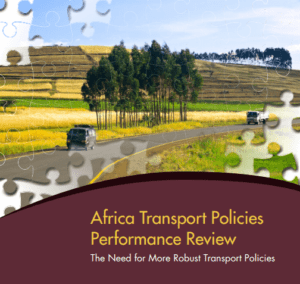Efficient and effective road transport is central to the economic growth and development of African countries.
Since road transport accounts for between 80 and 90% of the continent’s total trade in goods and services, African countries need adequate road infrastructure management policies, strategies and institutions. A systematic means of measuring the performance of road agencies is a basis for determining the factors that aid or impede the attainment of desired results. In an endeavour to deepen the understanding of the factors that affect the performance of road agencies in road asset management, two evaluations of road agency performance – using different approaches – have been conducted in Africa during the past five years. The first approach uses the Commercialised Road Management (CRM) framework, which focuses on compliance. There are four building blocks to the Road Management Initiative (RMI) – Responsibility, Ownership, Financing and Management. These were previously reviewed in the SSATP Working Paper 92 (Progress on Commercialized Road Management in Africa).The second approach is the British Standard Institution’s Publicly Available Specification (PAS55:2008) which recognizes that the management of physical assets is inextricably linked to the management of other assets types, such as Human Assets, Information Assets, Intangible Assets and Financial Assets.
The present working paper presents and compares the outcome of the two evaluations. It provides guidance to road sector stakeholders in terms of the differing analytical approaches that may be used to quantitatively evaluate the performance of road agencies. Merging the two approaches as suggested provides the flexibility to adjust performance evaluation to the various levels of performance and capacity of road institutions that can be found in road agencies. This working paper also strengthens the knowledge and awareness on good road management practices as a foundation for continuous advocacy on road sector reforms.





